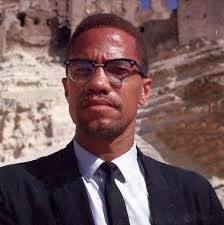Brother Hughes

James Mercer Langston Hughes was an American poet, social activist, novelist, playwright, and columnist. He was one of the earliest innovators of the then-new literary art form called jazz poetry. He was central figure in the "New Negro Movement" later known as the Harlem Renaissance Movement. He was also a member of Omega Psi Phi Fraternity Inc. Hughes was born February 1, 1902 in Joplin, Missouri. Although he lived in Illinois, Mexico, and Ohio.
By the time Hughes enrolled at Columbia University in New York, he had already launched his literary career with his poem "The Negro Speaks of Rivers" in the Crisis, edited by W E. B. Du Bois. He had also committed himself both to writing and to writing mainly about African Americans.

Hughes's sense of dedication was instilled in him most of all by his maternal grandmother, Mary Langston, whose first husband had died at Harpers Ferry as a member of John Brown's band, and whose second husband (Hughes's grandfather) had also been a militant abolitionist. Another important family figure was John Mercer Langston, a brother of Hughes's grandfather who was one of the best-known black Americans of the nineteenth century. At the same time, Hughes struggled with a sense of desolation fostered by parental neglect. He himself recalled being driven early by his loneliness 'to books, and the wonderful world in books.’

Leaving Columbia in 1922, Hughes spent the next three years in a succession of menial jobs. But he also traveled abroad. He worked on a freighter down the west coast of Africa and lived for several months in Paris before returning to the United States late in 1924. By this time, he was well known in African American literary circles as a gifted young poet.

His major early influences were Walt Whitman, Carl Sandburg, as well as the black poets Paul Laurence Dunbar, a master of both dialect and standard verse, and Claude McKay, a radical socialist who also wrote accomplished lyric poetry. However, Sandburg, who Hughes later called "my guiding star," was decisive in leading him toward free verse and a radically democratic modernist aesthetic.

His devotion to black music led him to novel fusions of jazz and blues with traditional verse in his first two books, The Weary Blues (1926) and Fine Clothes to the Jew (1927). His emphasis on lower-class black life, especially in the latter, led to harsh attacks on him in the black press. With these books, however, he established himself as a major force of the Harlem Renaissance. In 1926, in the Nation, he provided the movement with a manifesto when he skillfully argued the need for both race pride and artistic independence in his most memorable essay, 'The Negro Artist and the Racial Mountain."One result was his firm turn to the far left in politics. During a year (1932-1933) spent in the Soviet Union, he wrote his most radical verse. A year in Carmel, California, led to a collection of short stories, The Ways of White Folks (1934). This volume is marked by pessimism about race relations, as well as a sardonic realism.
Toni's Thoughts: Langston Hughes was a gift to the world art, culture, and literature. My favorite poems written by him are "Theme for English B" and "The Negro Speaks Rivers." Thank you Mr. Hughes for your contributions if you have never read any of his work I suggests you should.


Comments
Post a Comment